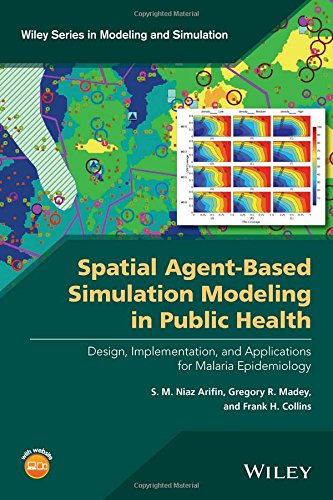

Most ebook files are in PDF format, so you can easily read them using various software such as Foxit Reader or directly on the Google Chrome browser.
Some ebook files are released by publishers in other formats such as .awz, .mobi, .epub, .fb2, etc. You may need to install specific software to read these formats on mobile/PC, such as Calibre.
Please read the tutorial at this link: https://ebookbell.com/faq
We offer FREE conversion to the popular formats you request; however, this may take some time. Therefore, right after payment, please email us, and we will try to provide the service as quickly as possible.
For some exceptional file formats or broken links (if any), please refrain from opening any disputes. Instead, email us first, and we will try to assist within a maximum of 6 hours.
EbookBell Team

4.3
18 reviewsPresents an overview of the complex biological systems used within a global public health setting and features a focus on malaria analysis
Bridging the gap between agent-based modeling and simulation (ABMS) and geographic information systems (GIS), Spatial Agent-Based Simulation Modeling in Public Health: Design, Implementation, and Applications for Malaria Epidemiology provides a useful introduction to the development of agent-based models (ABMs) by following a conceptual and biological core model of Anopheles gambiae for malaria epidemiology. Using spatial ABMs, the book includes mosquito (vector) control interventions and GIS as two example applications of ABMs, as well as a brief description of epidemiology modeling. In addition, the authors discuss how to most effectively integrate spatial ABMs with a GIS. The book concludes with a combination of knowledge from entomological, epidemiological, simulation-based, and geo-spatial domains in order to identify and analyze relationships between various transmission variables of the disease.
Spatial Agent-Based Simulation Modeling in Public Health: Design, Implementation, and Applications for Malaria Epidemiology also features:
Spatial Agent-Based Simulation Modeling in Public Health: Design, Implementation, and Applications for Malaria Epidemiology is an excellent reference for professionals such as modeling and simulation experts, GIS experts, spatial analysts, mathematicians, statisticians, epidemiologists, health policy makers, as well as researchers and scientists who use, manage, or analyze infectious disease data and/or infectious disease-related projects. The book is also ideal for graduate-level courses in modeling and simulation, bioinformatics, biostatistics, public health and policy, and epidemiology.